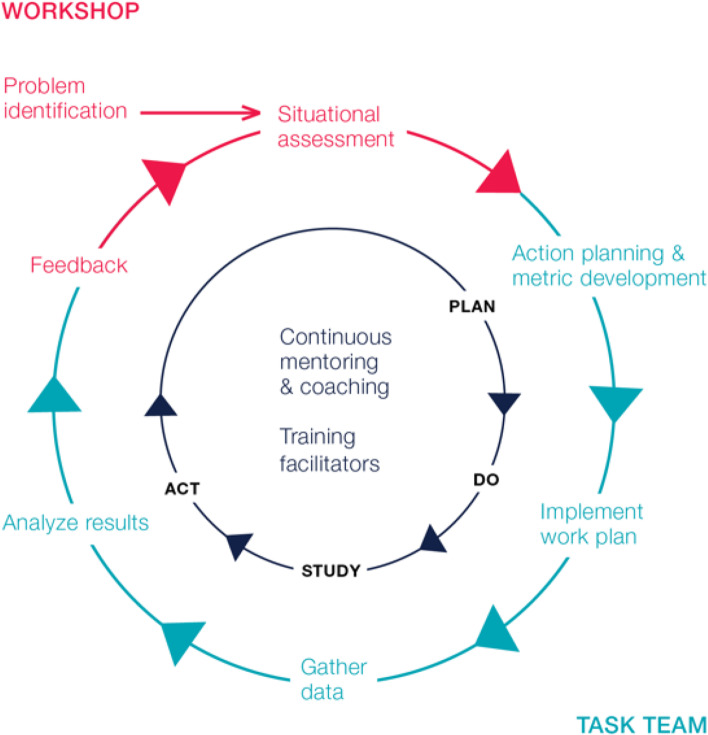Fig. 1.
Participative Process Improvement Model for District and Provicincial Teams [21]. This figure depicts the annual PPI cycle, starting with an initial workshop consisting of the ‘system in the room’ at the top, where problems are identified and a situational assessment is conducted. Participants include representatives from national and provincial malaria and health leadership, district workers from cadres involved in delivering malaria activities and community representatives including local politicians, traditional healers etc. that should receive them. A prioritized list of problems are then transformed into a work plan with associated metrics by a self-selected multidisciplinary Task Team of 8-10 people. The Task Team implements the work plan, devising solutions to each challenge, gathers data, and analyzes results in a Plan-Do-Study-Act cycle, while also receiving continuous mentoring and coaching. At the same time, local facilitators are trained in how to lead the workshops and Task Team meetings. A follow-up workshop closes the loop, during which progress on problem-solving is fed back to the group, and the cycle begins again with the resolution of some problems and the addition of new problems

